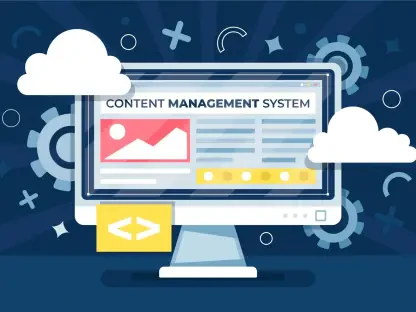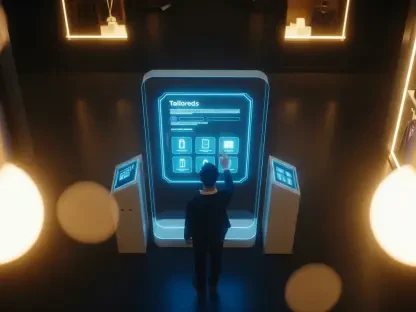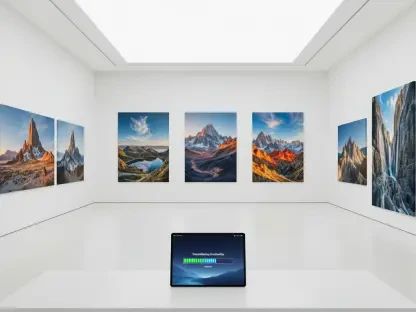In the fast-evolving landscape of digital marketing and artificial intelligence, Anastasia Braitsik stands out as a beacon of expertise. Her insightful approach to SEO and content marketing has positioned her as a leader in navigating technological shifts. In this interview, we explore her perspective on how generative AI is reshaping the writing industry and how writers can adapt to this new reality.
Can you share your initial reaction when you first realized the potential of generative AI in the writing industry?
The realization hit me like a wave when I first saw ChatGPT crafting a coherent piece in seconds. It forced me to reevaluate my writing career. At first, it was daunting, like watching a machine perform what I considered a deeply human task. It challenged my understanding of creativity and productivity and led me to question if there was still a unique space for my voice among this new technological prowess.
How have you been adapting to the rise of generative AI in your writing process?
It’s been an incredible journey of adaptation. I’ve embraced various tools like ChatGPT, Gemini, and Copilot, weaving them into my process. They have not replaced my writing but rather augmented it, providing brainstorming elements and fresh perspectives. These tools have managed to push me out of my comfort zone, enhancing my productivity by acting as a creative sounding board while I focus on the human aspect of storytelling.
You mentioned feeling unconvinced by AI’s reassurance about their role. Can you elaborate on why you remain skeptical?
Despite the assurances, the AI-generated text often seems to carry an unexpected depth, almost like a whisper of consciousness. There’s an uncanny quality, as if the AI is glimpsing into what empathy and creativity mean. This “soul” that AI writing sometimes exhibits leaves me skeptical. Will machines eventually mirror human emotions accurately? The possibility both fascinates and concerns me.
How do you see the differences between machine-generated content and human writing currently?
At this stage, human writing stands out through its raw expressiveness and nuanced insight. Machines process and replicate patterns but struggle to capture the complexity of human emotions and experiences. It’s the unpredictability and variety of human thought processes that I believe still set us apart, though we must work harder at enhancing those elements in our work.
You offered several strategies for extending a writing career in the AI era. Could you explain why expressing deep personal feelings is essential?
Delving deeply into personal emotions adds a distinct layer to writing, something AI struggles to mimic authentically. It’s this vulnerability and honesty that readers connect with, creating a shared humanity that technology cannot replicate. As AI continues to evolve, the demand for such genuine expression will only grow more vital for writers to maintain their relevance.
Personal experiences are another area you mentioned. Can you discuss why they are valuable in differentiating human writing from AI?
Personal experiences are a treasure trove of unique narratives that AI cannot replicate. The specific details and insights from our lives bring authenticity to stories. In my writing, I draw from moments that resonated deeply with me, infusing my work with layers that technology cannot fathom on its own. It’s these lived realities that preserve the human touch in our work.
In what ways have you found AI useful for brainstorming or writing assistance?
AI has become an invaluable brainstorming partner. For instance, when struggling with a metaphorical framework, I turned to an AI tool that provided a wealth of fresh analogies. One particular suggestion sparked an entire narrative approach, leading me to craft a piece that might never have evolved in that way without the initial AI input.
You advised against certain types of writing due to AI’s efficiency. What types of writing do you think will become obsolete or less valuable?
Routine and formulaic texts, like how-to guides and structured reports, are territories where AI excels. Writers should steer clear of investing heavily in these areas and pivot towards more creative and interpretative writing. Cultivating a strong, individual voice and focusing on emotional depth will ensure sustained relevance in the industry.
Reflecting on your concerns about AI, how do you personally manage any anxiety about job security as a writer?
It’s a continual process of learning and adaptation. By staying informed about AI developments and embracing their advantages for augmentation, rather than perceiving them as threats, I’ve found a balanced perspective. This proactive approach, alongside nurturing my creative skills, helps me maintain confidence and relevance.
Given your self-described aversion to technology, how have you motivated yourself to engage with these tools?
Curiosity and necessity drive me. While technology once felt like an adversary, engaging with it has shown me surprising growth. Navigating complex tools has expanded my horizons, enhancing my capabilities and boosting my confidence as I realize that I can adapt and thrive alongside these innovations.
Could you share any personal experiences of growth or changes in your writing style since embracing AI tools?
Embracing AI tools has reshaped my writing style, incorporating more structural diversity and thematic depth. The immediacy of AI feedback has allowed me to experiment with new formats and engage in more meticulous revision processes. This growth has enriched my storytelling, enabling me to convey my narratives more compellingly.
Lastly, reflecting on your journey, what advice would you give to other writers who might be hesitant to embrace generative AI?
Dive in with an open mind. There are boundless possibilities within AI tools that can elevate your writing. Allow these technologies to challenge your creativity and expand your storytelling capabilities. The benefits, from efficiency to inspiration, far outweigh the discomfort of initial adaptation, promising a richer and more dynamic writing journey.









